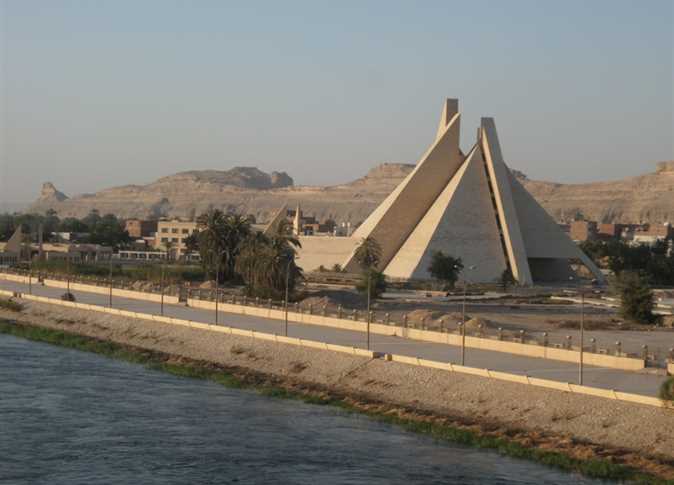Many writers wonder why Egyptians have not yet revolted to change their political regime. Several answers to this question have been offered.
Some have posited that Egyptians are by nature submissive to power, while others maintain that a long history of political tyranny coupled with the Egyptian security apparatus’ iron fist explain why Egyptians seem so meek. Still a third group attributes Egyptians’ servility to their pharaonic heritage that idolizes rulers, while others argue that Egyptians’ constricting social and economic conditions keep them focused on daily struggles to secure a better livelihood.
To my mind, however, the problem is not with the answers provided, but rather with the question posed. Why are Egyptians, of all the people in the world, expected to revolt against their rulers? And why do some people insist on answering this question with explanations of Egyptians’ supposed passivity?
Why not ask how come Iraqis and Algerians–who live in the most violent Arab countries–have not revolted against their rulers? Why did the Iraqis have to wait for Americans to invade their country in order to topple Saddam Hussein’s regime?
Why haven’t the Turks revolted since Mustafa Kemal Ataturk established the Turkish Republic in 1923, even though Turkey had a one-party system until 1946. Why did Turkey evolve into a democracy through a cumulative process, not a revolution?
Eastern European countries did not witness a single popular revolt or act of civil disobedience in their respective struggles against their former communist regimes. ُEven the communist government in the USSR collapsed from within as a result of reforms introduced by ex-Soviet President Mikhail Gorbachev.
Latin American regimes did not change under pressure from mass revolts of the kind that produced the Iranian revolution in 1979. These regimes changed as a result of political pressure similar to that built up by Egyptian protest movements. The only difference is that social movements in Latin America were heavily politicized and maintained channels of communication with professional syndicates and leftist political parties. In Egypt, however, our social movements have remained estranged from institutional politics.
Posing the wrong question will essentially elicit all kinds of wrong answers.
We should not use a nation’s readiness to revolt as the sole criterion to assess its democratic potential. Iran, which witnessed a great revolution, has not yet established a full democracy, whereas Spain and Portugal, for instance, have managed to create more successful democratic models by reforming their previous regimes. And while the two nations only made their democratic transformation in the mid-1970s, the rest of Europe has never accused their people of being politically submissive.
Some people use exceptional models to measure the success of protest movements around the world. With the exception of the French, Russian and Iranian revolutions, the world has hardly seen a large-scale revolution where the public has taken upon itself the mission of overthrowing an existing regime.
Some Egyptian analysts suggest that change can only take place through protests which will naturally lead to civil disobedience and then revolution. It puzzles me though that activists who stage such protests–with the ultimate aim of sweeping political change–have been engaging in such activities for a long time without ever achieving the desired results.
By contrast, other protests which have focused on particular issues have been enormously successful. Recent demonstrations against the alleged killing of Khaled Saeed at the hands of the police, for example, have forced the regime to reconsider its position. Some government officials have even called for the perpetrators to be punished.
Perhaps the lesson to be learned from the Khaled Saeed case is that Egyptians will protest against oppression when a specific issue attracts their attention and when it is presented in a simple way that everyone can easily understand.
Protests have become a common form of opposition to oppression in Egypt. While these protests may be apolitical in nature–in the sense that their ultimate purpose is not regime change–they should not be looked down upon. They can be an effective means of pressuring the government–even more powerful than protests calling for radical political change.
Processes of change in Egypt and in the world deserve more careful analysis. History demonstrates that gradual, peaceful change tends to be the rule in most societies while radical, revolutionary change is the exception.
Protests in Egypt are unlikely to result in a popular revolution, but they can, nevertheless, constitute a tremendous source of pressure on the regime. Perhaps Egypt needs a “reform lobby” that can save the country from the dangers of political stagnation and at the same time dispel illusions that change in Egypt requires a revolution.
Translated from the Arabic Edition.




